Investing with Keynes: How the World’s Greatest Economist Overturned Conventional Wisdom and Made a Fortune on the Stock Market
$9.99
Accessible and informative, Investing with Keynes identifies what modern masters of the market have taken from Keynes and used in their own investing styles—and what you too can learn from one of the most influential economic thinkers of the twentieth century.
John Maynard Keynes was a many-sided figure – world-changing economist, architect of the post-War international monetary system, bestselling author, a Baron in the House of Lords, and key member of the Bloomsbury group. He also had the talent and ability to make vast sums of money in the stock market. At the time of his death, Keynes’ net worth—almost entirely built through successful stock investments—amounted to the present-day equivalent of more than $30 million.
Additionally, the college endowment fund he managed had massively outperformed the broader market over a two-decade period. Keynes was a member of that rare breed—an economist who flourished not only in the rarefied heights of ivory tower academia, but also amidst the hustle and votility of the financial markets. How does a study of Keynes—the shrewd stock picker and star fund manager—benefit the modern investor? In this volatile era, Keynes’ observations on stock market behaviour, in fact, are more relevant than ever.
Contents:
- THE APOSTLE MAYNARD
- CITIZEN KEYNES
- SNAP, OLD MAID, AND MUSICAL CHAIRS
- THE RECKONING
- RAISING A DUST
- ANIMAL SPIRITS
- GAME PLAYERS
- SEARCHING FOR STUNNERS
- SAFETY FIRST
- LEANING INTO THE WIND
- BEING QUIET
- EGGS IN ONE BASKET
- A SENSE OF PROPORTION
- POST MORTEM
- A SUMMING UP
Investing with Keynes: How the World's Greatest Economist Overturned Conventional Wisdom and Made a Fortune on the Stock Market By Justyn Walsh pdf
| Author(s) | |
|---|---|
| Format | |
| Pages | 307 |
| Publication Year | 2021 |
12 reviews for Investing with Keynes: How the World’s Greatest Economist Overturned Conventional Wisdom and Made a Fortune on the Stock Market
Only logged in customers who have purchased this product may leave a review.


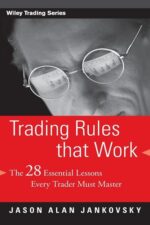

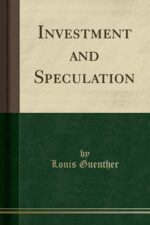
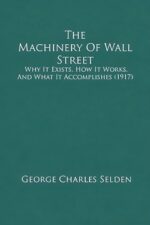
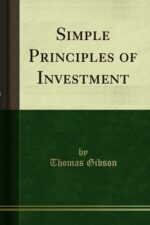
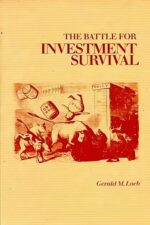
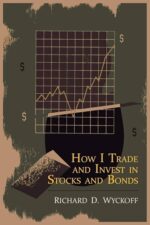
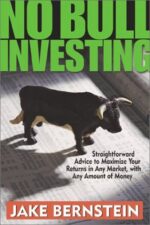
Samantha Parker (verified owner) –
Nice and crisp book, well covered investing methods of Keynes. A good read for those interested in long term wealth creation
Coraline Marquez (verified owner) –
Wonderful book. Very much full of information regarding Keynes life and investing style. Very fluid in the exposition and pleasant reading. Substantially Keynes was a Value investor (in the last part of his short life -died at 63, but enormously rich). No news in the book about the notions well known regarding the discipline of Value investing, but it is very pleasant to read about his investing experiences and various quotes that the author refers in the book. Very much suggested!!!
Valeria Best (verified owner) –
great book on value investment. keynes and buffets views on investments are very well shared. i loved the book.
Ulises Torres (verified owner) –
First, the title is misleading as there’s little direct investment insight to be had. Secondly Keynes wasn’t even an economist, so the title alone should tell you all you need to know from the author’s knowledge.
Marilyn Bates (verified owner) –
The book is pure theory no practical investment ideas. Avoid if you can.
Caleb Robertson (verified owner) –
I have enjoyed biographies of Keynes in the past, and Walsh weaves in biographical information and paints an interesting portrait of Keynes, but specifically focuses on his investing theories and strategies. I found his management of various endowments especially fascinating, and his “beauty pageant” assertion is certainly true today, seeing as how GameStop rocked the market recently. Learn how to keep a cool “Keynesian” head!
Saint Hodge (verified owner) –
I am grateful to Justyn Walsh for his tremendous reasearch. Keynes is the economic genius writing in the 1920’s and1930’s lighted upon and made the intellectual leap to “value investing” when Warren Buffett, born in 1930, was just a boy. Warren quotes Keynes who preferred “one investment about which I had sufficient information to form a judgement to ten securities about which I know little or nothing……There are seldom more than two or three enterprises at any given time in which I personally feel myself entitled to put full confidence.”
Ellis Chen (verified owner) –
This book was a pure pleasure to read from beginning to end. Not only is it filled with memorable aphorisms and epigrams, it contains a wealth of information that makes it worth re-reading more than once. I also greatly admire the elegance of the writing (I am somewhat jealous in fact) that makes it worthy of the great master himself (J.M. Keynes was one of the most lucid and stylish prose writers of the 20th century).
Malakai Hughes (verified owner) –
Investment banker and now money manager Justyn Walsh has offered up an overview of the investing style John Maynard Keynes where aside from running his own personal portfolio he invested the endowment of Kings College along with several insurance companies. His record as an investor in the troubled 1930’s was phenomenal.
Walsh recounts the influence of Edgar Lawrence Smith’s 1924 classic “Common Stocks as Long Term Investments” which became the great intellectual foundation of the 1920’s bull market. In that book Smith recognized that industrial companies by retaining earnings became compound interest machines. During the 1920’s Walsh characterizes Keynes as a momentum investor and in 1929 he paid the price with severe losses.
In the early 1930’s similar to Benjamin Graham he became a value investor seeking out individual securities that he believed sold at a discount to their underlying intrinsic value independent of behavior of the overall stock market. This approach is very similar to that of Warren Buffett. Keynes, also similar to Buffett, believed in running a concentrated portfolio where his best ideas would have a real impact. As with Buffett he believed that less than knowledgeable investors should own a broadly diversified portfolio.
My main problem with this readable, but somewhat repetitive book, is that there is no data on the year-to-year performance of the portfolios he was managing and there is no inkling of what securities he actually owned. Further he mentions that Keynes had a less than stellar sell discipline but offers no real proof. Simply put, Walsh over-promises.
Alora Ayers (verified owner) –
The story of Keynes the economist and statesman are well known, but that he was an early practitioner of value investing isn’t- and it should be.
Harmony Wong (verified owner) –
good look at investing principals but lacks specifics about Keynes investments and is somewhat repetitious when discussing his approaches.
Harlem Freeman (verified owner) –
This is a very readable and enjoyable book about Keynes as an investor that also references Buffett to a large extent. I wish it had some specific examples of Keynes investment selections and the circumstances around them. Many wonderful quotes from Keynes included. I give it 5 stars for nicely filling a void in the literature.